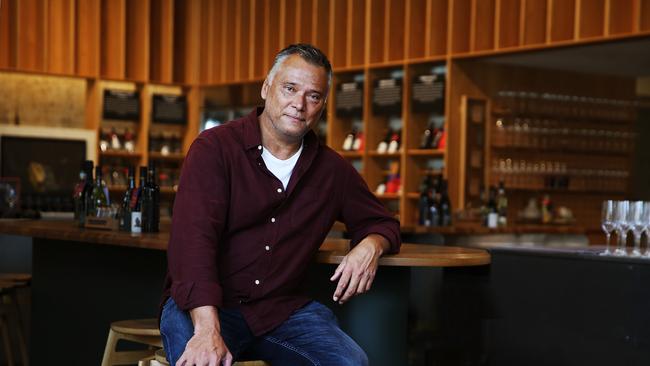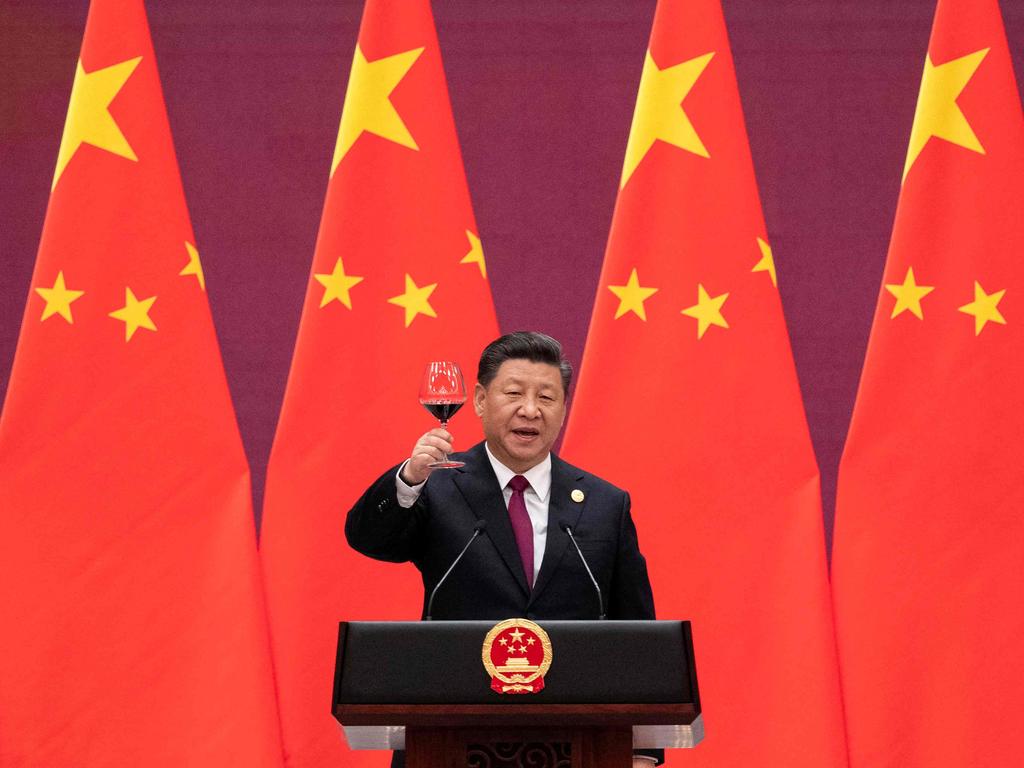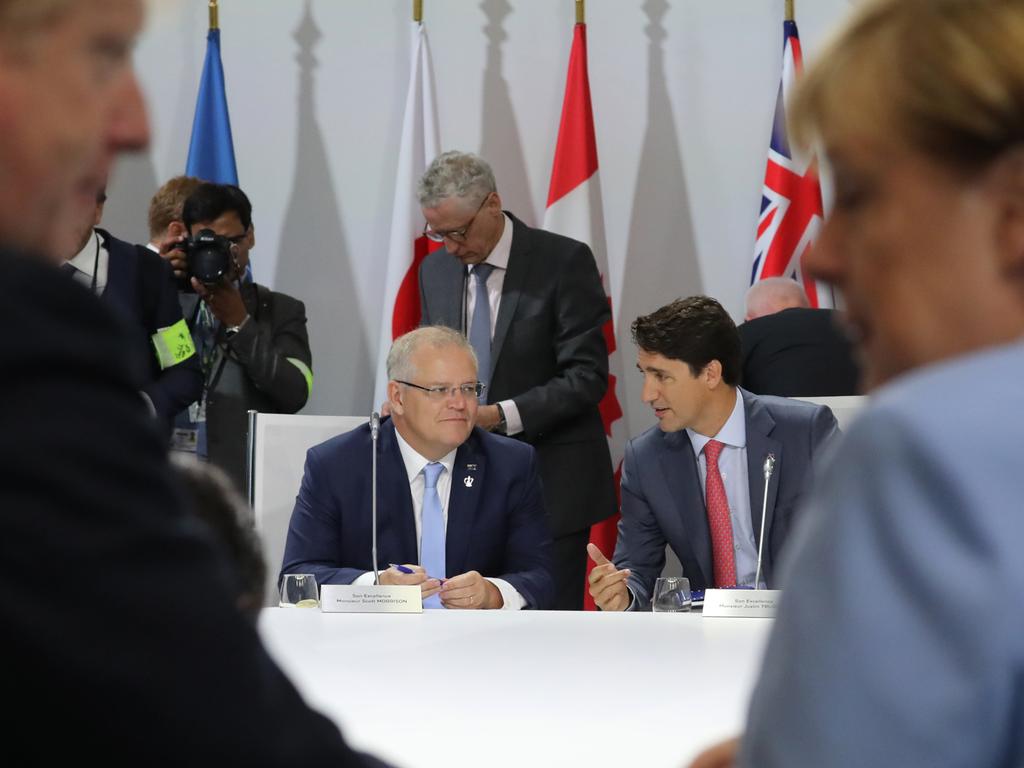Subs pact makes us a target for nuke attack? Gao figure
Stan Grant’s tete-a-tete with Victor Gao was one of the more extraordinary interviews of recent memory – but it was barely covered.

On Monday, Stan Grant interviewed Victor Gao on ABC television’s China Tonight program in the wake of the decision that Australia would purchase nuclear-powered submarines from the US or Britain under the new AUKUS trilateral security agreement.
Gao is the vice-president for the Centre for China and Globalisation who holds a professorship at Suzhou University in China. He was formerly a translator for one-time Chinese leader Deng Xiaoping. Now, if someone in democratic Australia held, or once held, such a position it would be no big deal. But China was created as, and remains, a totalitarian state.
In view of his background, it is likely Gao is a member of the ruling Chinese Communist Party. Whether or not this is the case, it is unlikely Gao would make statements with respect to China’s policy towards Australia if the CCP leadership did not approve his decision to speak as he did in the current “wolf warrior” Chinese diplomacy.
First up, Grant asked Gao a brief question as to how he saw “this submarine announcement”. Gao had uttered only so much as 50 words when he declared: “Armed with nuclear submarines, Australia itself will be a target for possible nuclear attacks.” When Grant commented: “Australia will be a target for nuclear attacks – from whom?”, Gao replied: “You do not need to know.”
When Grant made the point that Australia’s planned nuclear submarines would not carry nuclear weapons, Gao asked: “Do you really want to be a target for a possible nuclear war?”
And so the discussion continued, with Gao instructing Grant on two occasions to “listen to me”. However, Grant was listening, so he was able to point out to Gao that China had plenty of nuclear submarines.
It is a rare event indeed when a person who holds a prominent position in one country appears to threaten a nation with a nuclear attack if it does not change policy. Apart from coverage on the news.com.au website, Gao’s belligerent statement has attracted little media attention.
That was Monday evening. On Wednesday morning, Nine Entertainment newspapers (The Sydney Morning Herald and The Age) carried a column from former Labor prime minister Paul Keating titled “Morrison is making an enemy of China”. The reference was to the AUKUS agreement, announced late last week, which made the submarine decision possible.
In his article, Keating wrote that “China does not attack other states” and added: “The notion that Australia is in a state of military apprehension about China, or needs to be, is a distortion and lie of the worst and most grievous proportions.” Perhaps he did not watch the Grant-Gao interview.
Keating claimed it was “a measure of Australia’s luck” that “Australians have been vested with a continent of our own”. He added that China was “10 flying hours from Australia’s east coast cities”. This is true. But it’s also true that Australia’s security depends on the inability of a hostile power to interdict sea or air lanes. That’s why successive Australian governments, Coalition and Labor alike, have understood the need for maritime security assisted by intelligence.
In his youth, Keating was influenced by the isolationist nationalism of one-time NSW Labor premier Jack Lang. Keating occasionally has exhibited a distrust towards Britain and the US. However, this was not evident during his successful years as treasurer in Bob Hawke’s Labor government and later as prime minister for four years.
Keating’s current hostility to what he terms “the Anglosphere” translates into Australian politics. In his recent article Keating described Australia’s two longest serving prime ministers, Robert Menzies and John Howard, as “appeasers”. This overlooks the fact, when prime minister in 1939, Menzies declared war on Nazi Germany and committed Australian forces to the Middle East. At the time Labor was opposed to the commitment of forces overseas.
Keating applauds the role played by prime minister John Curtin from the time he became prime minister in 1941 until his death in office in 1945. This overlooks the fact, when Curtin was opposition leader in the 1930s, the Labor Party opposed every attempt by the governments of Joseph Lyons and then Menzies to increase military expenditure.
According to Keating, Howard is a “US appeaser” because of Australia’s military commitment to the coalition of the willing’s invasion of Iraq and replacement of Saddam Hussein. If this is the case, then the same applies to former British Labour Party leader Tony Blair.
As readers were considering Keating’s criticism of Scott Morrison as “a younger throwback to the Liberals’ Anglosphere”, the Prime Minister was in Washington, soon to partake in a meeting of the Quadrilateral Security Dialogue comprising Australia, India, Japan and the US. It doesn’t sound universally Anglo, does it?
Keating believes the AUKUS agreement will lead to Australia “losing its way in the neighbourhood of Asia”. However, Australia is not the only nation in the region concerned about China’s military build-up under President Xi Jinping. So are the likes of South Korea, Japan, The Philippines, Vietnam and more besides.
The importance of AUKUS to Australia and the region was well explained by one-time Australian diplomats Natasha Kassam, Dennis Richardson and Peter Varghese on ABC Radio National Breakfast last Wednesday.
Soon after Keating’s piece in the Nine newspapers, former Labor prime minister Kevin Rudd criticised the nuclear submarine decision in French newspaper Le Monde. He also attacked Morrison’s alleged focus on the Anglosphere. This overlooks the fact France always acts in accordance with its perceived national security interests. Why should Australia act differently?
It is in Australia’s interest to be on good relations with China. But this will not be achieved by China’s diplomats setting out 14 demands on Australia, as occurred in late November last year. Or by the performances of the likes of Gao on China Tonight this week.
Gerard Henderson is executive director of the Sydney Institute. His Media Watch Dog blog can be found at theaustralian.com.au.






It was one of the more extraordinary interviews of recent memory – which was barely covered in the media.